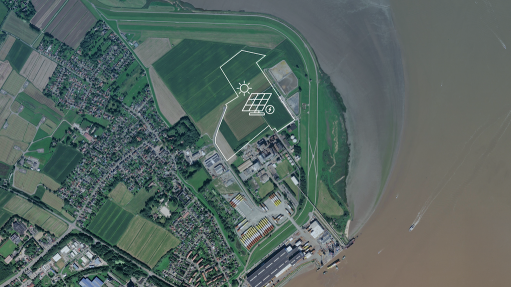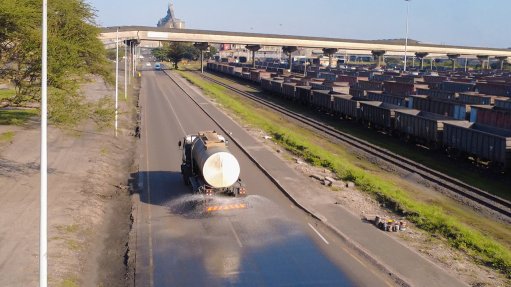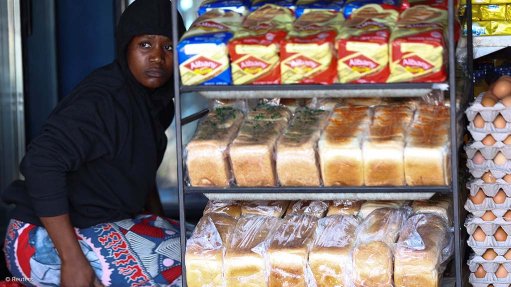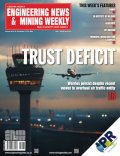Packaging organisation urges responsible ammonium nitrate warehousing
After a cache of ammonium nitrate exploded earlier in August and left great devastation in Beruit, Lebanon, the Responsible Packaging Management Association of Southern Africa (RPMASA) has stressed the importance of correct due procedure when handling ammonium nitrate.
The association warns that what happened in Beruit should be a wake-up call for all chemical manufacturers, importers and storage facilities in South Africa.
"Ammonium nitrate should be treated, handled and stored with the utmost respect, as oxidisers can rapidly react with incompatible materials, including hydrocarbons and organic materials, to produce runaway fires and explosions, the organisation states.
RPMASA technical director Liz Anderson explains that ammonium nitrate is classed as an oxidiser and explosive, while potassium nitrate and sodium nitrate are also classed as oxidisers and components of fertilisers, which have been the cause of various chemical disasters over the years.
For example, the Tianjin catastrophe, in China, which happened on August 12, 2015, had central explosions creating a crater sizing 66 m by 54 m and caused the death of 170 people.
Additionally, the Rhine Warehouse fire and disaster in Basel in November 1986 was reported to have started with a small fire involving nitrate-based fertilisers that spread rapidly to a pesticide warehouse producing highly toxic fumes across three adjoining countries – Switzerland, France and Germany.
Anderson says it is important to consider what can be done to prevent such disasters happening in our region.
Ammonium nitrate is regulated in South Africa under the Explosives Act Number 26 of 1956 and its regulations.
Import, export and transport into and through the ports is well regulated by the South African Police Services’ explosives division.
However, Anderson highlights that a challenge comes in with the warehousing and storage in the vicinity of the ports and other regions, while mis-declared cargo can also play a role in chemical disasters – where unknown cargo can accidently cause a serious interaction with other incompatible products with disastrous consequences.
“Warehousing is an area of serious concern in the periphery of the ports and other light industrial areas as many were not designed for the storage of chemicals – remember the south Durban Warehouse fire in March 2017, which caused black smoke to cover large areas of the city from near Bayhead to as far north as Ballito for several days, requiring some communities to be temporarily evacuated.
“What may be lurking from years past, and what condition could it be in? The answer is a need of full inventory and audits together with permitting of all warehousing that stores chemicals,” Anderson states.
She reiterates that training is essential for all involved in the storage of chemicals to understand the physical properties of chemicals, their compatibility and reactivity to ensure correct separation and segregation; as well as inventory control, maintaining hygiene and good condition of packaging.
Anderson adds that warehouses ought to have risk assessment and emergency plans in place to share with emergency services.
RPMASA in 2017 launched the Chemical Distribution Institute International Marine Packed Cargo Assessment Schemes in South Africa.
These include audit schemes for warehousing and freight forwarders, as well as port terminals, to help them benchmark their level of safety, efficiency and compliance, and set improvement plans to achieve global excellence.
Anderson says implementation of these assessments by all chemical warehousing companies would be a great start to identifying and eliminating potential risks in warehousing, and provide peace of mind to those who store chemicals and to surrounding communities.
Comments
Announcements
What's On
Subscribe to improve your user experience...
Option 1 (equivalent of R125 a month):
Receive a weekly copy of Creamer Media's Engineering News & Mining Weekly magazine
(print copy for those in South Africa and e-magazine for those outside of South Africa)
Receive daily email newsletters
Access to full search results
Access archive of magazine back copies
Access to Projects in Progress
Access to ONE Research Report of your choice in PDF format
Option 2 (equivalent of R375 a month):
All benefits from Option 1
PLUS
Access to Creamer Media's Research Channel Africa for ALL Research Reports, in PDF format, on various industrial and mining sectors
including Electricity; Water; Energy Transition; Hydrogen; Roads, Rail and Ports; Coal; Gold; Platinum; Battery Metals; etc.
Already a subscriber?
Forgotten your password?
Receive weekly copy of Creamer Media's Engineering News & Mining Weekly magazine (print copy for those in South Africa and e-magazine for those outside of South Africa)
➕
Recieve daily email newsletters
➕
Access to full search results
➕
Access archive of magazine back copies
➕
Access to Projects in Progress
➕
Access to ONE Research Report of your choice in PDF format
RESEARCH CHANNEL AFRICA
R4500 (equivalent of R375 a month)
SUBSCRIBEAll benefits from Option 1
➕
Access to Creamer Media's Research Channel Africa for ALL Research Reports on various industrial and mining sectors, in PDF format, including on:
Electricity
➕
Water
➕
Energy Transition
➕
Hydrogen
➕
Roads, Rail and Ports
➕
Coal
➕
Gold
➕
Platinum
➕
Battery Metals
➕
etc.
Receive all benefits from Option 1 or Option 2 delivered to numerous people at your company
➕
Multiple User names and Passwords for simultaneous log-ins
➕
Intranet integration access to all in your organisation

















